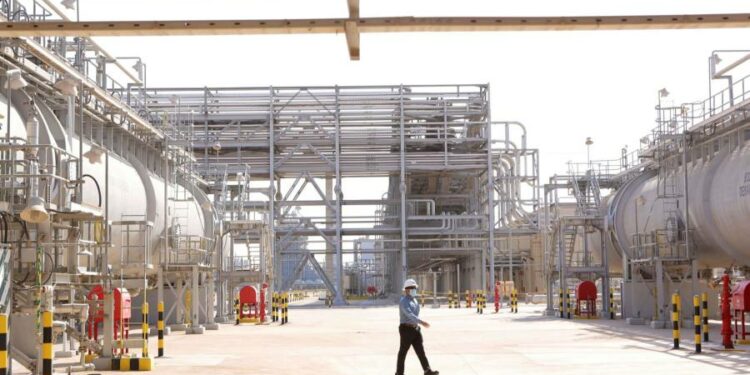Saudi Arabia has transferred 4 per cent of the shares in national oil group Saudi Aramco to its sovereign wealth fund in a boost worth about $80bn, as the Public Investment Fund shores up its assets and prepares to raise public debt.
The announcement on Sunday comes a week after the PIF, the driving force behind an ambitious Saudi plan to reorganise its economy by 2030, received its first credit ratings from Fitch and Moody’s. These are a precursor to the fund potentially launching “green bonds” and extending $15bn in bank facilities as it seeks to raise more debt.
In a statement carried by the official news agency, Crown Prince Mohammed bin Salman, the country’s day-to-day ruler and chair of the PIF, said the move aimed to support the wealth fund’s plans to increase its assets to SR4tn ($1.07tn) by 2025.
The PIF wants to inject SR1tn into new domestic projects by that year. The fund, whose assets have mushroomed over the past six years, has become the main engine for a government plan to diversify its economy away from oil and create more jobs in the world’s largest energy exporter.
The government remains the largest stakeholder in Aramco, owning 94 per cent of shares, after the energy giant sold a 1.7 per cent stake on the Saudi stock market in 2019, raising about $29bn in a blockbuster initial public offering.
The company said in a statement on Sunday that the transfer of shares to Aramco was a private agreement between the state and the PIF and no proceeds would go to Aramco.
“The transfer will not affect the company’s total number of issued shares, and the shares transferred will rank equally alongside other existing ordinary shares in the company,” it added.
The PIF, whose governor is the chair of Aramco, Yasir al-Rumayyan, will collect Aramco dividends. Saudi officials have said that Aramco could plan to sell more shares in the future, based on market conditions.
Prince Mohammed said the transfer of the 4 per cent stake would buttress the PIF’s “strong financial position and its increased credit rating in the medium term”.
PIF’s assets under management, which increased from $152bn in 2015 to $412bn in 2020, are estimated at about $500bn.
Fitch, which issued the fund with a long-term default rating of A, said government cash injections into the PIF had totalled $77bn over the past three years. It had also received other grants such as land transfers for domestic investments.
These local investments, such as the futuristic city of Neom, made up 67 per cent of the fund’s portfolio as of December 2020, Moody’s said. The fund has also been on an international acquisition drive, investing in businesses as diverse as electric vehicle manufacturer Lucid Motors and the Premier League football club Newcastle United.











